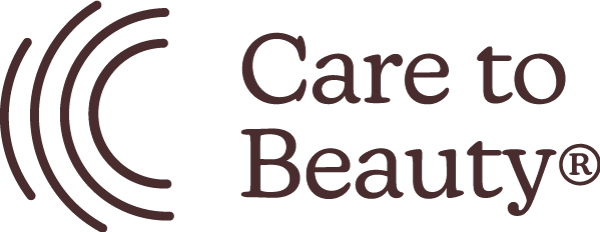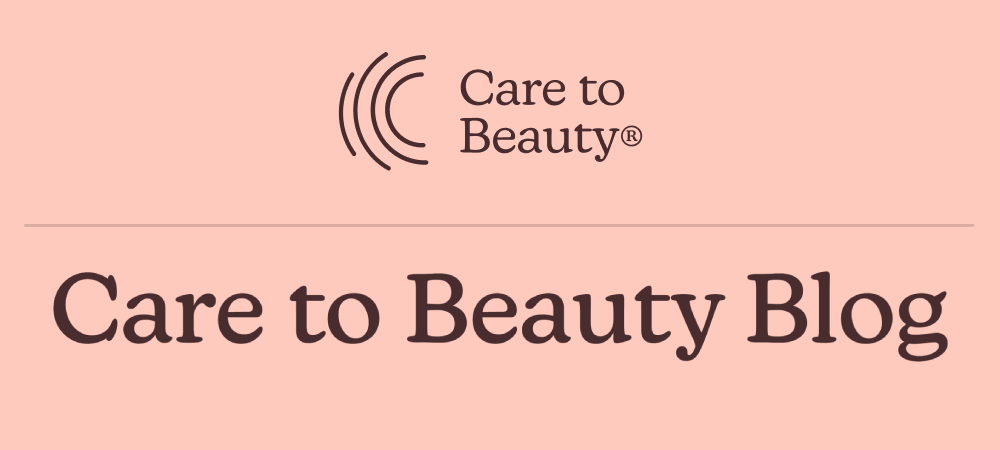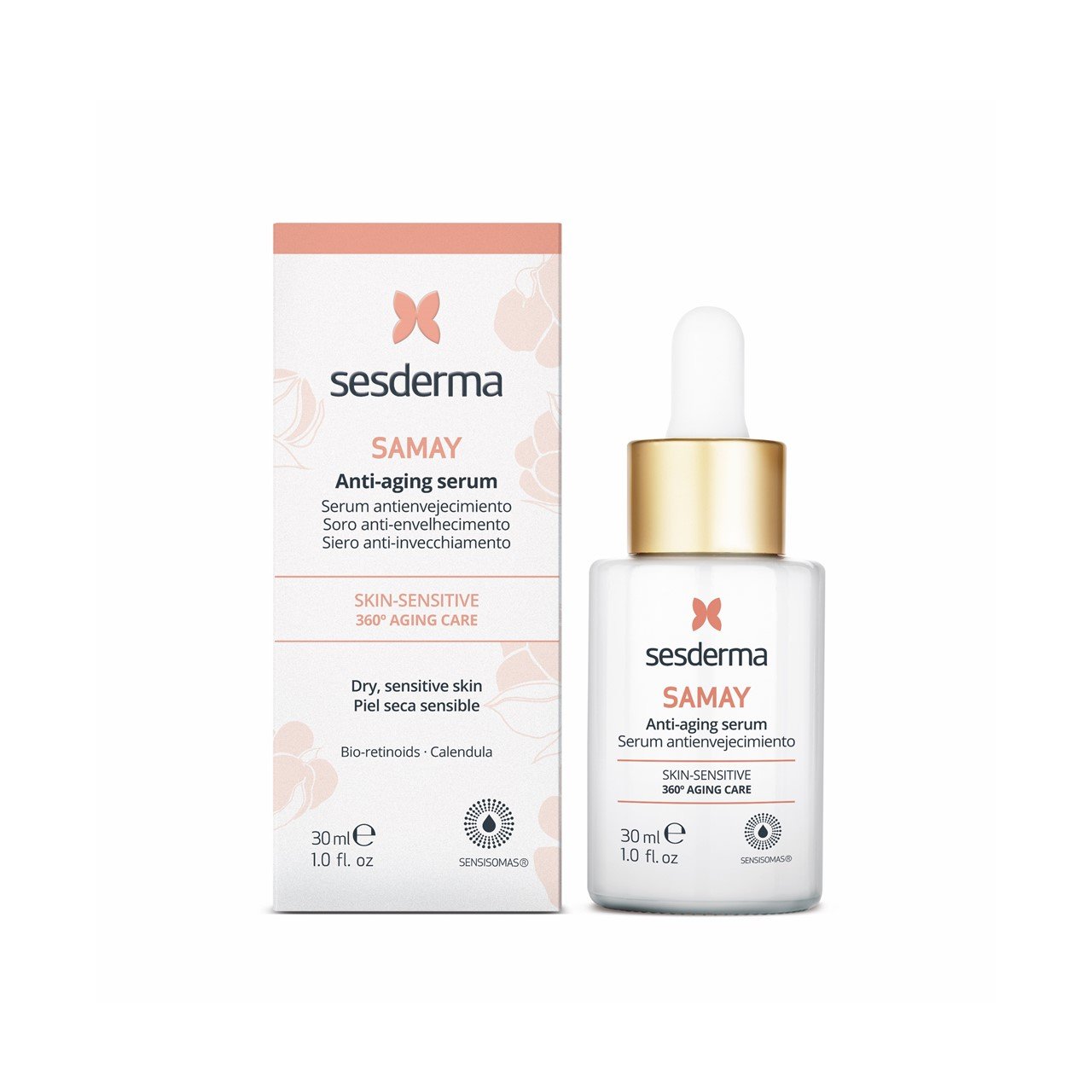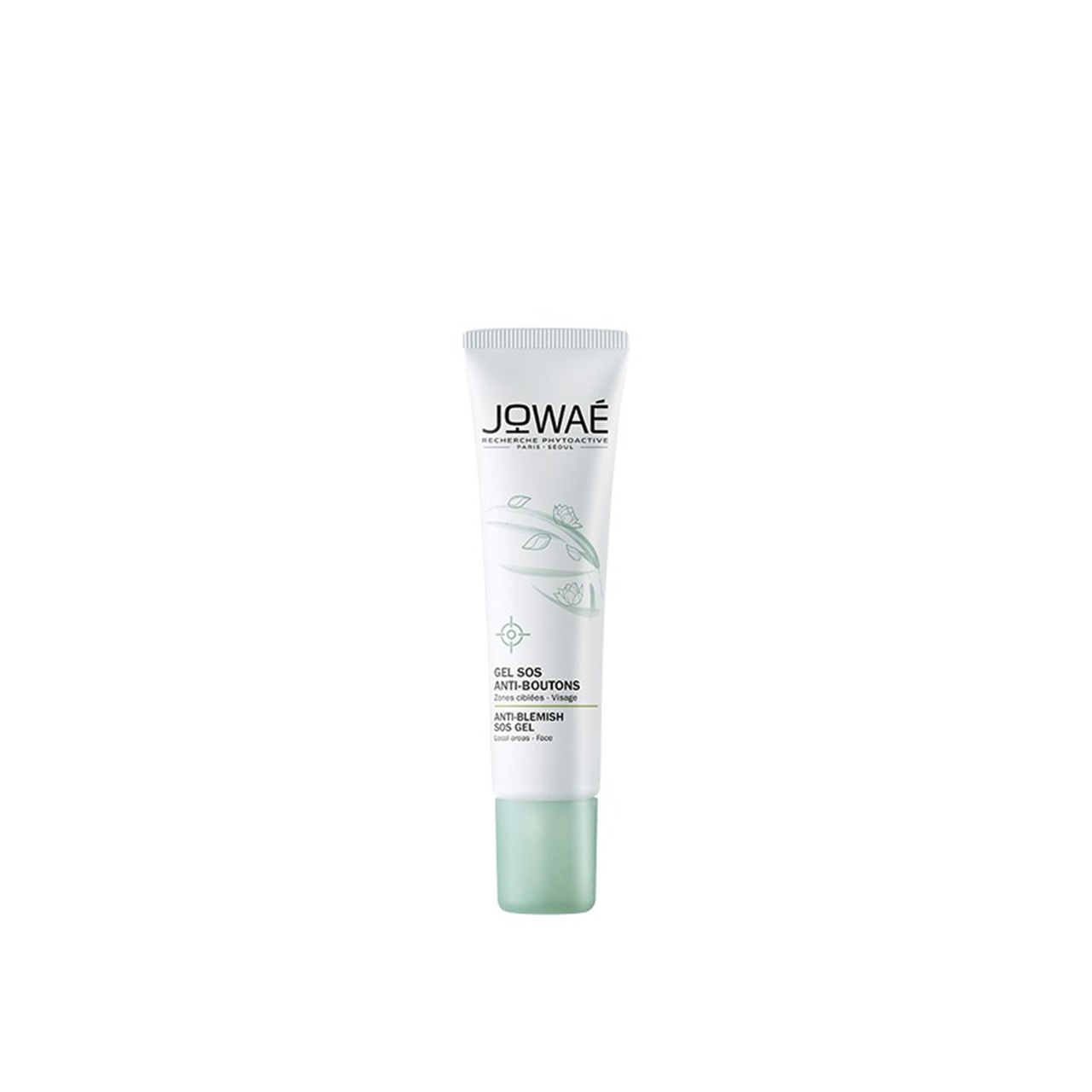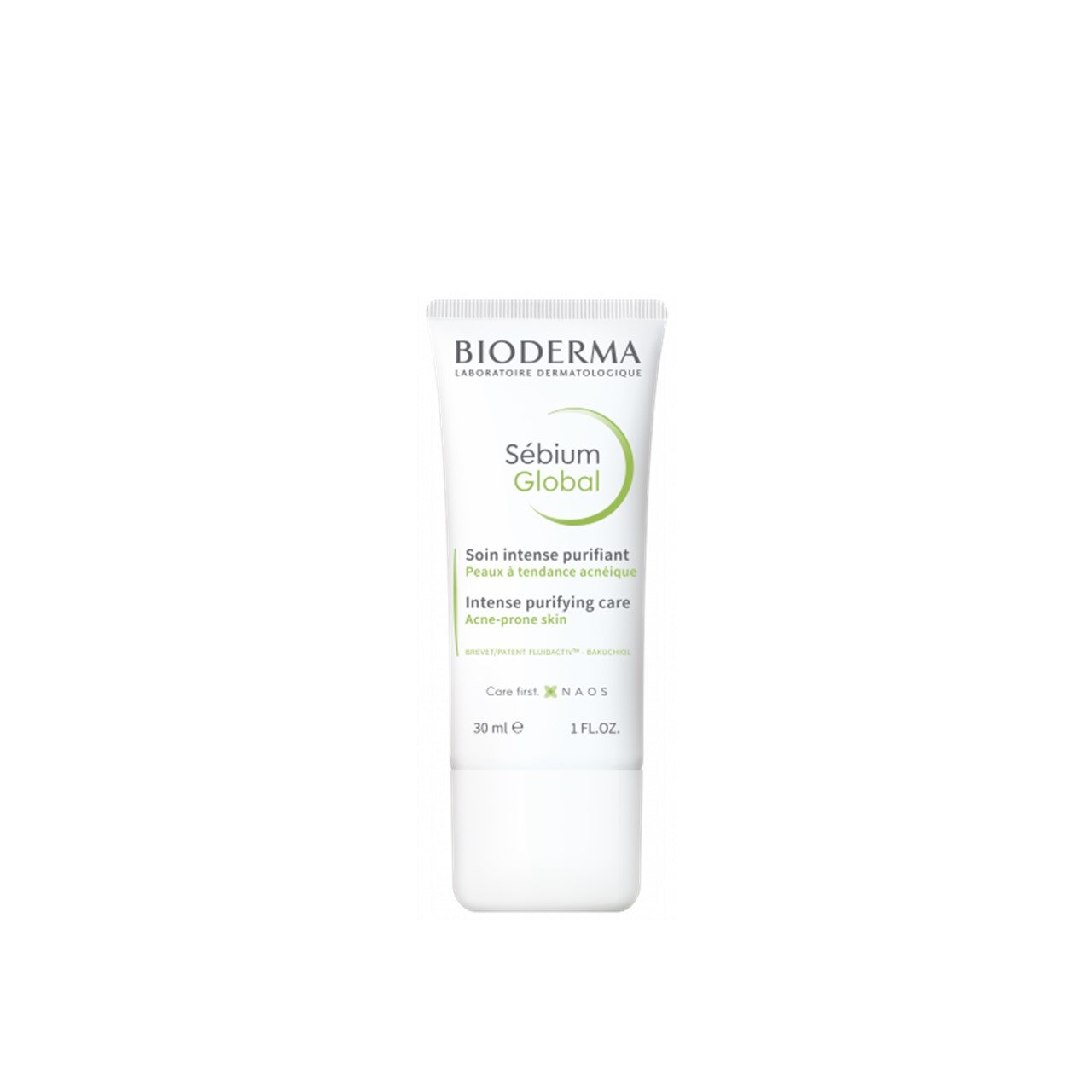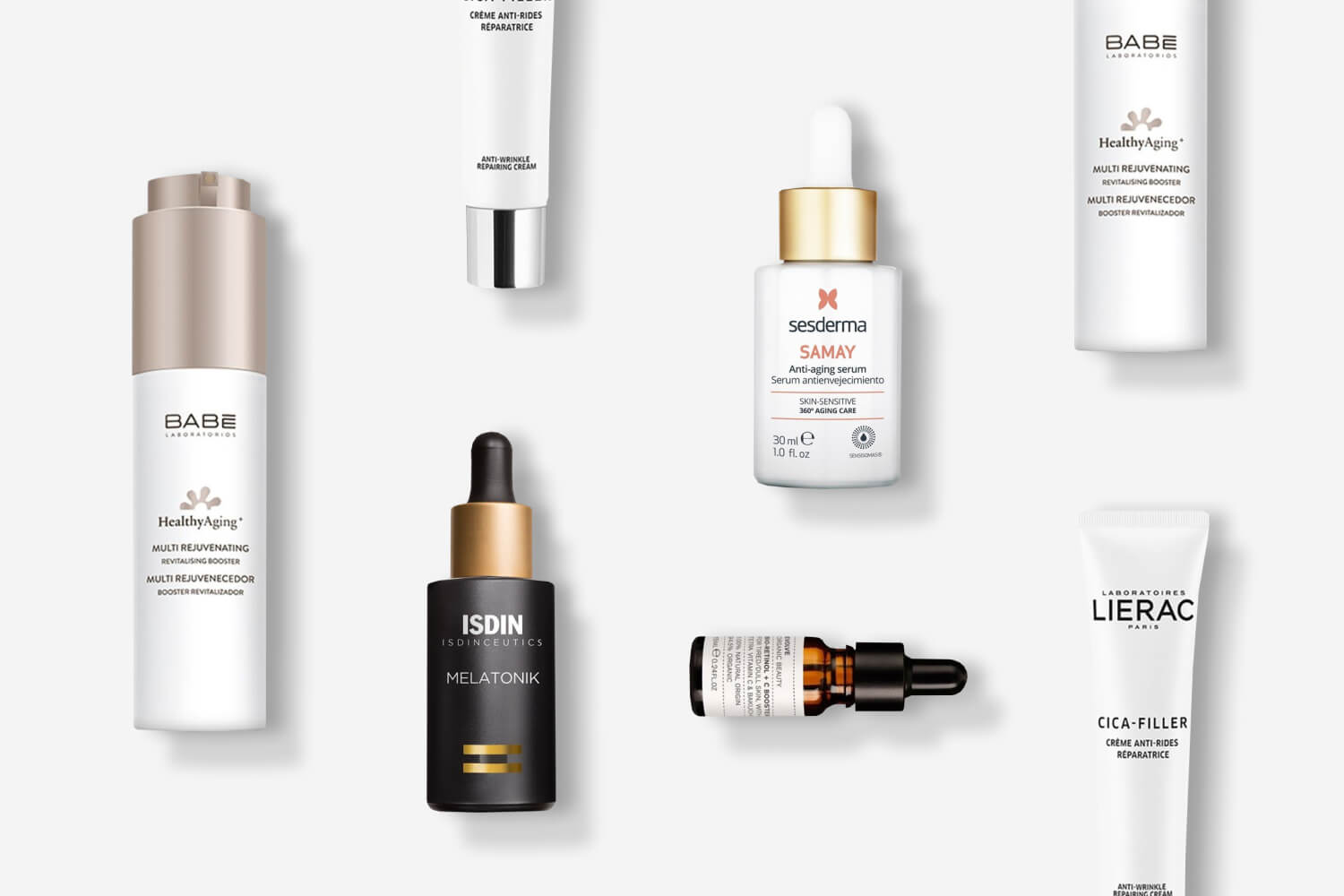
Bakuchiol is an up-and-coming skincare ingredient that you may have seen pop up in quite a few anti-aging formulas in the past couple of years. Marketing claims describe bakuchiol as retinol-like, the natural alternative to retinol, or even the retinol for sensitive skin. But what exactly is bakuchiol? Where does it come from? And does it truly measure up against retinol? Let’s find out.
On this post:
- What is bakuchiol?
- How bakuchiol benefits the skin
- Potential side effects of bakuchiol
- Who should use bakuchiol?
- How to use bakuchiol in your skincare routine
- What kind of products contain bakuchiol?
What is bakuchiol?
Bakuchiol is a plant extract, mainly found in the seeds and leaves of a plant called Psoralea corylifolia. Psoralea corylifolia, also known as Babchi, has long been used in traditional Indian and Chinese medicines, but it’s only relatively recently that this particular component, bakuchiol, has made a splash in the skincare world.
In recent years, we’ve seen bakuchiol pop up a little bit all over the place, in serums and creams that aim to reduce wrinkles, restore firmness, and minimize dark spots and other pigmentation irregularities. Because it’s natural, and because it seems to provide much the same benefits as retinol, the Holy Grail of anti-aging ingredients, bakuchiol has garnered a bit of a reputation as “the natural alternative to retinol”. A little word on that: no two ingredients are exactly alike, so it may be a little bold to present bakuchiol as an “alternative” to retinol. However, the “natural” part of the claim is definitely true. If you’re someone who values natural and botanical skincare, bakuchiol may be a really exciting addition to your anti-aging skincare routine.
How bakuchiol benefits the skin
Anti-aging
Studies suggest that bakuchiol can improve the appearance of fine lines and wrinkles, help reduce dark spots and hyperpigmentation, and promote skin elasticity and firmness. Those benefits all sound very retinol-like, indeed, so you won’t be surprised to know that bakuchiol is mostly found in anti-aging skincare products.
There aren’t that many studies on bakuchiol though, and there is some debate about what exactly those studies are trying to show. How comparable is bakuchiol to retinol, truly? After all, if it were better, faster, or more effective, we’d all be making the switch! But we may need a lot more data to be able to make such claims with any kind of confidence.
The current consensus seems to be that, while bakuchiol has a lot of potential in terms of anti-aging effects—specifically when it comes to smoothing out existing wrinkles, arguably the Holy Grail of anti-aging skincare—, its greatest selling point seems to be a lack of significant side effects. (We’ll get to that in the next section.)
Anti-acne
Like retinol, bakuchiol may have some potential in the fight against acne. One study found that, when applied twice a day, bakuchiol “significantly reduced the number of inflammatory lesions and improved existing post-inflammatory pigmentation”. For this reason, you may also see bakuchiol pop up in products designed for acne-prone skin.
Potential side effects of bakuchiol
One of the greatest selling points of bakuchiol is that it seems to provide anti-aging benefits without the “undesirable effects”, as one study calls them, that are often associated with retinol.
Retinol is the gold standard when it comes to effective anti-aging skincare that produces real, measurable results; however, this efficacy may come at a price for some people, and that’s irritation. Dryness, redness, a little peeling here and there… these are all common side effects of retinol, and while they may be tolerable for some, they can be prohibitive for those whose skin tends to be more sensitive or intolerant.
Bakuchiol seems to be less likely to cause these levels of irritation, making it a better option for sensitive skin. However, it’s important to keep one thing in mind: bakuchiol may not bring along as many side effects as retinol, but that doesn’t make it devoid of potential side effects. Like with every other skincare ingredient, some of us may develop reactions from allergies or intolerance to that particular ingredient.
In short: bakuchiol isn’t necessarily “safer” than retinol. They’re both very safe (otherwise they wouldn’t be in your skincare products), it’s just that bakuchiol seems to be better tolerated overall!
Bakuchiol and sun exposure
Bakuchiol does not seem to be sun-sensitizing; however, it’s always good practice to follow any anti-aging product with a heavy dose of sun protection.
Bakuchiol and pregnancy
Retinol is a skincare superstar, but it’s one of the few skincare ingredients you should avoid during pregnancy. This is true for all retinoids (aka vitamin A derivatives), and retinyl palmitate, retinaldehyde, retinol, and tretinoin are all advised against during pregnancy.
Bakuchiol is often described as “retinol-like”, but it’s important to keep in mind that bakuchiol is not a vitamin A derivative. On one hand, this means that bakuchiol isn’t necessarily out of the question for use during pregnancy just because it’s comparable to retinol; on the other hand, we don’t have enough information, at this point in time, to tell you whether it’s safe. When in doubt, always speak to your doctor–they will be better equipped to help you make this decision.
Who should use bakuchiol?
Anyone who wants to prevent or minimize signs of aging can use bakuchiol, either on its own or in combination with retinol itself. Products like the skinChemists Youth Series Retinol & Bakuchiol Day Moisturizer, for example, use both retinol and bakuchiol in the same formula, as a way to achieve more effective results.
As for who should use bakuchiol, here’s what we think: if you have sensitive skin, or have found retinol hard to tolerate in the past, you should definitely give bakuchiol a try, and see how you do. If you’re just about to begin your retinol journey, bakuchiol may also be a helpful stepping stone.
Last, but not least, if you’re all about natural skincare and botanical ingredients, bakuchiol may also be an interesting ingredient for you to experiment with.
How to use bakuchiol in your skincare routine
The right way to use bakuchiol in your routine will always depend on the products you use–when in doubt, follow the instructions on your specific product! However, you can follow a few rules of thumb:
- Always patch test your bakuchiol products before use;
- Start by using the product 2-3 times a week, and then work up to daily use;
- If you experience sensitivity after applying your bakuchiol products, apply a layer of moisturizer afterward;
- Apply your bakuchiol products to previously cleansed skin, as the first step of your skincare routine (unless otherwise specified);
- Always use sunscreen in the morning if you are using bakuchiol in your skincare routine. This is a very general recommendation, of course–you should be wearing sunscreen anyway!
What kind of products contain bakuchiol?
Like retinol, bakuchiol is mostly found in “leave-in” skincare formulas–meaning, creams and serums that are supposed to deliver benefits directly to your skin over a period of time. You won’t find bakuchiol in cleansers, for instance, as you would essentially be washing its many benefits down the drain with each use. That being said, you can find bakuchiol in products targeted at either anti-aging or anti-acne benefits:
Bakuchiol for anti-aging
So far, we’ve mostly seen bakuchiol as a star ingredient in anti-aging serums and creams, particularly in products more targeted to sensitive skin. Spanish brand Sesderma uses bakuchiol as a retinol alternative in the Samay range, and Nivea uses it in the Nivea Cellular Expert Lift 3 Areas Bakuchiol Serum serum, for example. Even uber-popular beauty brand Revolution has come out with a small but mighty collection of bakuchiol-based anti-aging products.
Bakuchiol for acne-prone skin
As already mentioned, bakuchiol may also be present in products targeted at acne-prone skin, due to its potential to reduce acne and post-inflammatory pigmentation. That is the case with these two products, even though they are completely different in usage. JOWAÉ Anti-Blemish SOS Gel is a handy SOS product that helps dry out the occasional pimple, Bioderma Sébium Global is a rebalancing and sebum-regulation product for the daily care of acne-prone skin. Although they are very different, the two products rely on the properties of bakuchiol to help reduce imperfections and create a more even complexion.
So, now that you know a little bit more about bakuchiol, are you sold on the benefits of this “natural alternative to retinol”? If you have sensitive skin, considering giving bakuchiol a try: it may very well be the anti-aging ingredient you need to level up your routine.
Beauty Writer & Editor
